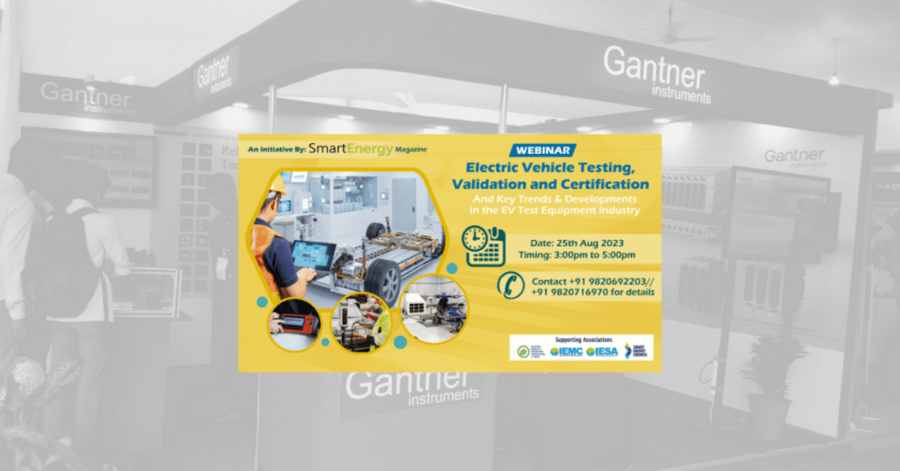Electric vehicle (EV) testing goes beyond homologation testing for the vehicles and their components. It also covers the charging interfaces and the associated systems that enable EVs, charging stations, and back-office systems to communicate with one another, known as interoperability or conformance testing. Battery packs and the modules they are made of, containing large numbers of battery cells, are a source of energy that can be a potential hazard and, consequently, must be tested. Additionally, the conformance testing of all electrical components, such as plugs, cables, connectors, wiring, and switches, is an important step in electric vehicle testing. The Webinar will highlight EV and authorized agencies’ different testing and certification requirements. It will also deliberate on the EV test equipment industry and discuss technical advancements in EV test equipment, evolving market segments, the latest product developments, and the key drivers accelerating the growth of the EV test equipment industry.
The webinar will deliberate on the following topics:
- Standardization efforts, government policies & regulatory framework in India
- Testing and Accreditation/Approvals, also called as Homologation of EVs in India; Component approval, system approvals, whole vehicle type approval
- Charging types, charger testing, and certification
- Battery safety regulation; Battery Performance and safety testing
- Market overview of electric vehicle test equipment market: Key Market Trends, Growth Factors, and Opportunities
- EV battery testing technology, challenges, and solutions
- Upcoming trends of EV test equipment market
- New test methodologies are needed for effective, efficient, and accurate methods of testing EV systems
- New and advanced battery testing systems/platforms/software
- Testing vehicles according to Indian emission norms, the European Emission Standards (EEC), and the US Environmental Protection Agency (EPA) emission regulations
- Challenges & Solutions in maintaining a balance between high cost and performance of the test
Early Confirmed Speakers:
- Rajaram T R – Country Head- INDIA, Gantner Instruments
- Shrikant Gundu – Assistant Manager, Innovation Team, iASYS Technologies
- Rutuj Undale – Research and Development Engineer, Innovation Team, iASYS Technologies
Webinar Schedule:
Date: 25th Aug 2023
Time: 3:00 pm to 5:00 pm
Platform: Zoom Register @ Rs.1999/- Rs.199/- Only!
This Webinar will shine a light on not just the current situation and challenges facing mass adoption and deployment of EV infrastructure but on how we transition to where we need to be in the next 5 years and beyond!
Take advantage of the Opportunity to be part of the Deliberation and to Connect & Network with Leaders and Professionals from the EV Industry.
Contact for appointments

Rajaram T R
Country Head – India
raj@gantnerinstruments.in
We would be pleased to meet you at the webinar!
More articles
Enhanced Functionality with GI.bench’s Newest Release: Revamped UI, Powerful Tools and More!
Introducing the latest update to our powerful and intuitive testing and measurement software - GI.bench. This update promises to elevate your testing capabilities with features designed to streamline your workflow and maximize productivity.
Read more...FHV Jobmesse 2024
Gantner Instruments will be part of the largest job fair in the region on March 15, 2024.
Read more...33nd Dresden Bridge Building Symposium 2024
We are thrilled to announce the 33nd Dresden Bridge Construction Symposium (DBBS), set to take place on March 13th/14th, 2024
Read more...Q.series interface with the Moog Aerospace Test Controller
The amount of data generated in an aircraft structural test program continues to grow. The density of load introduction points (actuators) and sensors (strain gauges, thermocouples, LVDTs) on a test article is increasing progressively and model validation requires higher data sample rates to capture more detail. The risks and costs involved in aircraft validation and certification are significant, and the requirement for quick entry-into-service is high. To minimize the impact of retrofitting in-service aircrafts, the ability to generate test results quickly is crucial to the success of a test program.
Read more...